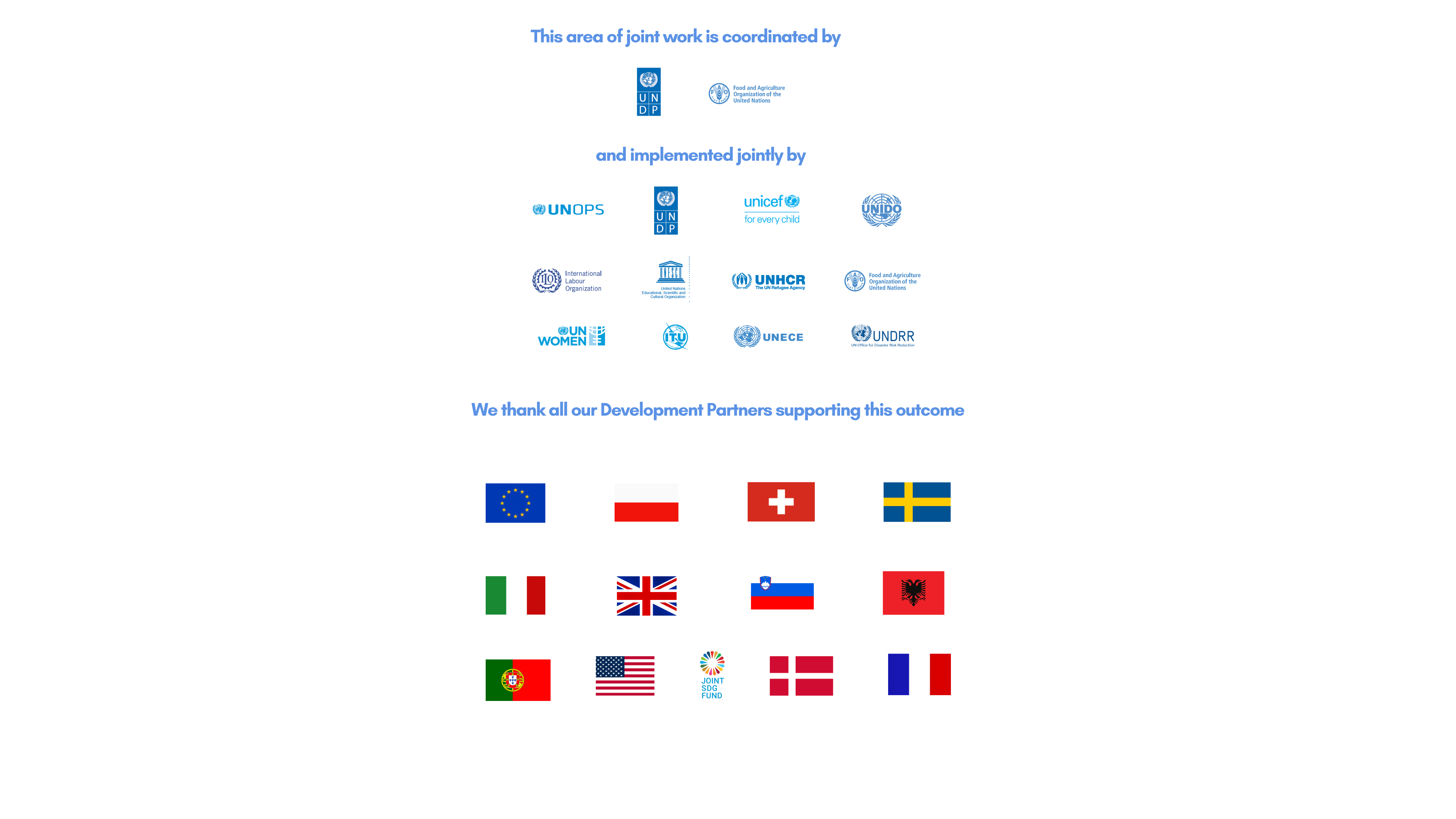The voices of young people are crucial in shaping policies, driving innovation and fostering sustainable practices. As part of the YouthMove4Air&Climate2 initiative, more than 250 young leaders who are passionate about environmental stewardship are raising awareness of air quality information and watchdog skills in nine municipalities: Berat, Durres, Elbasan, Fier, Korce, Kurbin, Pogradec, Shkoder and Tirane. The aim is to work with these municipalities to take proactive measures and educate their communities on the significance of clean air and the long-term benefits it offers. The initiative is implemented by UNICEF in partnership with the Albanian government line ministry and local partners and is supported generously by the Swedish government.
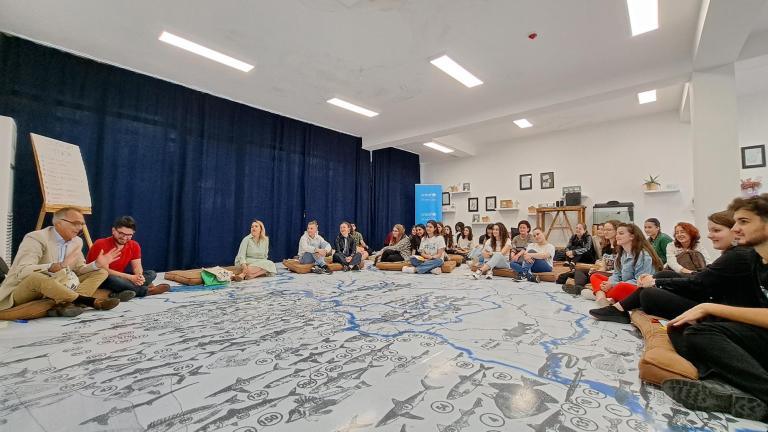
Read the full story here.
Employment and Skills Development
UN support to employment and skills reform in 2023 helped to strengthen the strategic, policy and legal framework, capacities for implementation, and employment, skills and integration of vulnerable groups. National Employment and Skills Strategy (NESS) 2023–2030 was adopted and amendments to the Law on Employment Promotion enacted, specifically addressing inclusive employment for PwD through the Social Employment Fund.
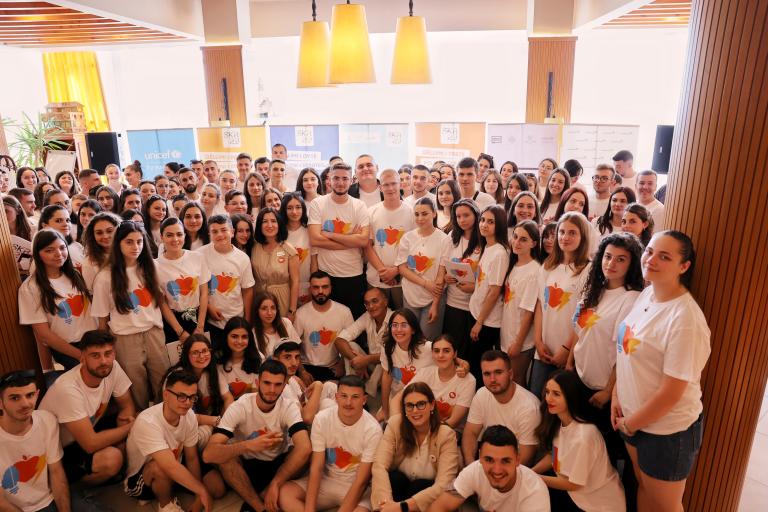
The UN played a key role in supporting the Ministry of Finance and Economy (MoFE) and national institutions in preparing bilateral screening meetings on EU acquis chapters, including ‘Freedom of Movement of Workers’ (Chapter 2), ‘Social and Employment Policy’ (Chapter 19) and, partially, on ‘Education and Culture’ (Chapter 26).
Sustainable and resilient economic growth and green and blue economy transition
In response to the two shocks of the 2019 earthquakes and the Covid-19 pandemic, the UN in 2023 continued its contribution to sustainable development, economic resilience and empowerment across various sectors. The INFF drafting process and the funding of the DFA for Albania were presented to the Inter-ministerial Committee on Sustainable Development, marking a significant milestone in the domestic ownership of the process. In addition, wider interest on sustainable finance was captured with the event Financing Sustainable Development in Albania. Building on DFA findings, UNDP initiated preparation of an SDG Investor Map for the country, complementing the array of instruments necessary for mobilising private sector resources and boosting SDG financing.
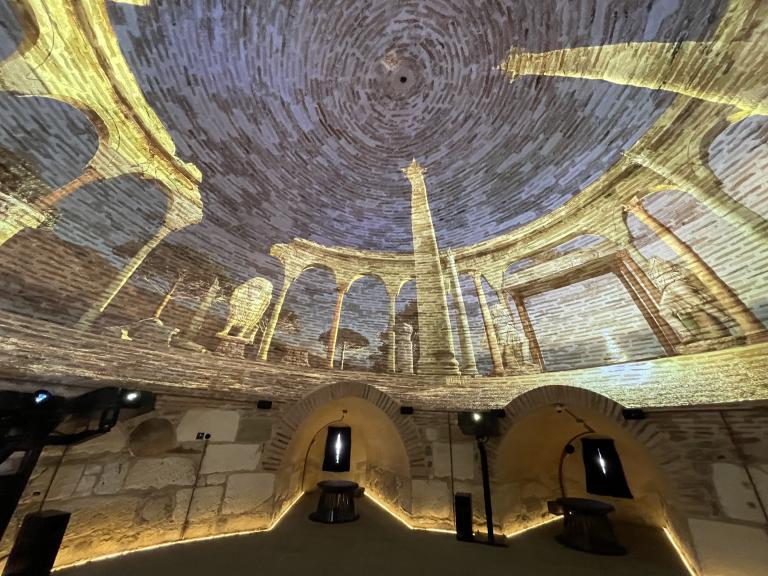
Innovation
Innovation is central to sustainable development and a catalyst for economic growth. UN support for innovation spans country interventions including women’s empowerment, education, child health promotion and youth entrepreneurship. The following notable actions took place:
- A new Digital Innovation Profile for Albania is being developed, to be launched in Q2 2024.
- Support for the platform Akademi.al has enriched the learning experience for pre-schoolers, while the innovative career platform, to be developed jointly with the Agjencia Kombëtare e Punësimit dhe Aftësive (National Employment and Skills Agency) platform, focuses on equipping young people with essential communication and job application skills. The GIS platform for school infrastructure, covering 6 municipalities, enhanced transparency in identifying schools for reconstruction.
- Youth entrepreneurship found support through the UPLIFT Start-Up Accelerator.
- Ministry of Agriculture and Rural Development (MoARD) was supported in establishing a technical working group for the Farm Accountancy Data Network (FADN) and developing software technical specifications through training and study visits.
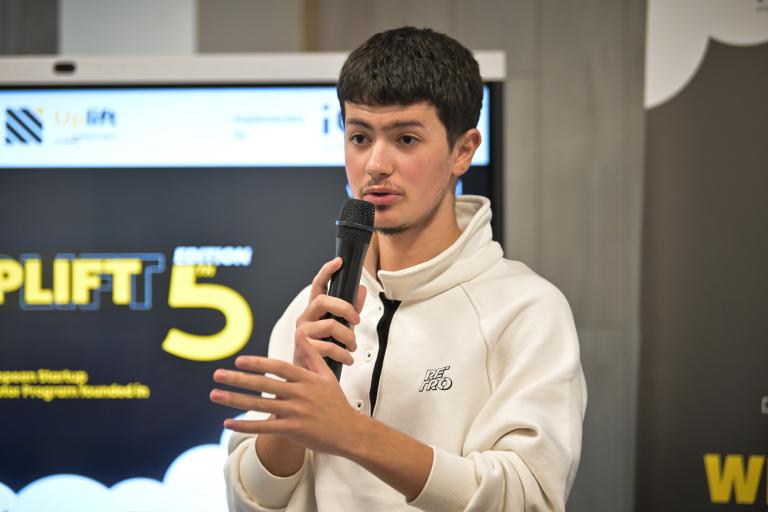
Climate and ecosystem resources
Protected Areas and nature conservation
Albania experienced a remarkable surge in tourism in 2023, with 10.1 million visitors welcomed, an increase of 35 percent over the previous year. Of these tourists, 4.5 million explored the country’s PAs. Crucial UN support to these areas is provided to enhance governance mechanisms and bolster financial sustainability to effectively manage nature conservation and promote ecotourism.
Challenges to and opportunities for biodiversity conservation and resilience to climate change in the northern Albania mountains and national park were explored through meetings with key beneficiaries and stakeholders at the inception of a new global environment fund multi-year programme.
Under a collaborative Team Europe initiative, funded by the EU and Swedish government, and jointly implemented with the Italian Agency for Development and Cooperation, the PAs network will be strengthened and aligned with EU standards, particularly with Natura 2000. The development of new digital maps for all PAs in the 12 regions, utilising GIS technology, enables accurate depiction of changes in surface areas, and provides key tools for monitoring, managing and planning, resulting in a strengthened approach to the holistic management of these vital ecological zones.
A significant environmental achievement was marked with the declaration of Vjosa River as a National Park. This categorisation positions Vjosa River as the first Wild River National Park in Europe, a testament to collaborative efforts and multi-partner engagement.
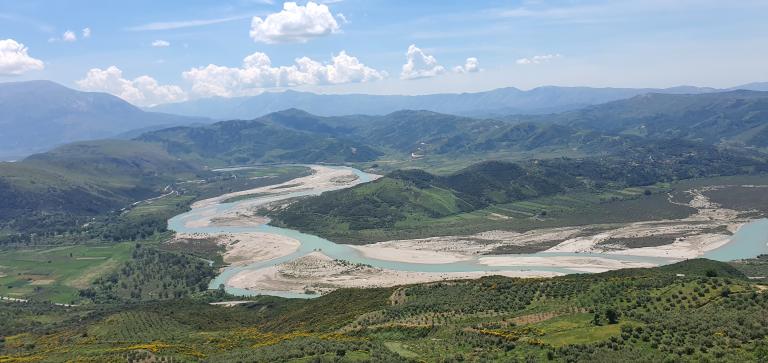
Establishment of the legal basis and the National System of Inventory and Projections for Greenhouse Gas Emissions aligns with EU requirements. This achievement builds upon the UN-supported system of reporting developed over four National Communications (since 2002) to the United Nations Framework Convention on Climate Change (UNFCCC).
Disaster Risk Reduction
The UN commitment to enhancing Albania’s Disaster Risk Management System yielded significant results. Institutional structures, including civil protection committees, were established. New instruments, such as risk assessments, disaster risk reduction (DRR) strategies and civil emergency plans, were introduced at national, regional and local levels. These advancements not only bolstered Albania’s resilience but also paved its way for membership of the EU Civil Protection Mechanism.
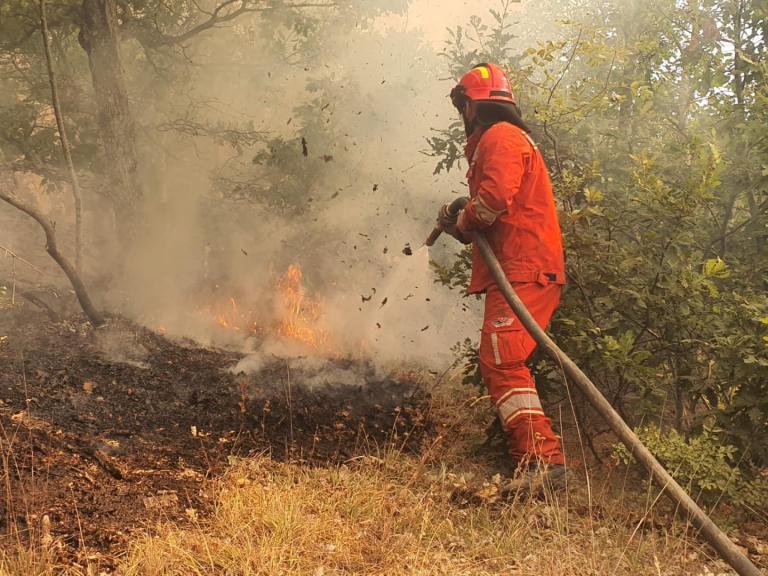
In Fier region, preparation of subnational DRR strategy and planning documents, regionally and locally, directly benefits 298,144 people, including local communities and stakeholders. Lessons learned and best practices are actively shared with the other 11 regions and 55 municipalities nationwide to promote scaling up and continuous improvement.
Sustainable cities
A country profile on Urban Development, Housing and Land Management was completed and approved at the 84th session of the UNECE Committee on Urban Development, Housing and Land Management, providing insights into Albania’s urbanisation, housing and land management.
In the framework of the initiative Child Friendly Municipalities (Bashki mike e femijeve) in Korce and Diber municipalities the following achievements were made:
- Statistics on Children in Diber were published, 153 adolescents (78 girls of age 10–17 years) voiced their concerns and 98 adolescents (45 girls) improved their skills in advocating for their rights with the local authorities. One-third (30%) were from rural areas and one-fifth (20%) from families at risk of exclusion. This forum provided an opportunity for children, who are not usually heard, to present a wide range of interests and concerns to the municipalities.
- In Korce, 6 local CSOs, very active as members of the inter-sectoral steering committee of the initiative, engaged 60 adolescents (40 girls) including those from rural areas and R&E communities.
Highlights of Results on Economic Growth, Innovation and Climate Change
People
directly benefited from improved access to skills and lifelong learning programmes, including for Comprehensive Sexual Education
Hectares of Protected Areas
of terrestrial and marine type were created or went under improved management practices
Private Sector Entities
innovated their business practices, by mainstreaming environmental, social or economic sustainability elements and 150 private sector entities were exposed to SDG positive business practices
Young People
were supported through skills-building programs
People
with UN support, gained access and benefited from services from clean, affordable, and sustainable energy
Employment Promotion Programmes
were designed and implemented for vulnerable groups

